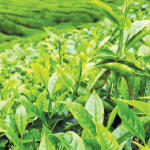The Kenya Tea Development Agency (KTDA) has issued a warning to candidates vying for director positions in factory elections against using the agency’s logo and other facilities in their campaigns.
In a statement, the KTDA’s top management noted that these candidates are under public scrutiny on social media for alleged unethical behavior.
The election process, overseen by the Independent Electoral and Boundaries Commission (IEBC), has seen several candidates use the KTDA logo in their campaign materials, including posters and online graphics.
The agency has stressed the importance of maintaining ethical standards and adherence to rules during the campaign period.
Oversight agencies
The use of KTDA’s brand names and trademarked symbols is neither endorsed nor permitted by KTDA Holdings and its subsidiaries. Instead the candidates are supposed to use own logos as they sell their policies to the farmers.
“KTDA acknowledges these concerns and urges the election oversight agencies to ensure that candidates cleared to run are of good moral standing. KTDA has a zero-tolerance policy on gender-based violence, sexual harassment, corruption, and other such unethical behaviour,” stated the statement. It adds: “In alignment with Chapter 6 of the Kenyan Constitution, KTDA calls upon the election oversight agencies to ensure those elected to lead factories are thoroughly vetted and are persons of integrity.”
The Kenya Tea Development Agency (KTDA) has made it clear that unauthorized use of its logo by candidates should not be interpreted as an endorsement by the organization. The agency has requested all candidates to stop using these marks immediately.
A senior official with the KTDA confirmed that some candidates with court cases have been cleared by the IEBC, raising concerns among international buyers. The election will be held on June 28, 2024, across all 71 tea factories affiliated with the KTDA.
Over 600,000 tea farmers from the 54 KTDA-managed factories will participate in the elections, voting through a secret ballot system based on the “one farmer, one vote” principle. The IEBC, as mandated by Article 88 (4) of the Constitution, will oversee the elections and appoint returning officers for each factory.
The government has been consistent in implementing new reforms in the tea sub-sector over the past two years, aiming to improve the sector’s overall performance and sustainability.



